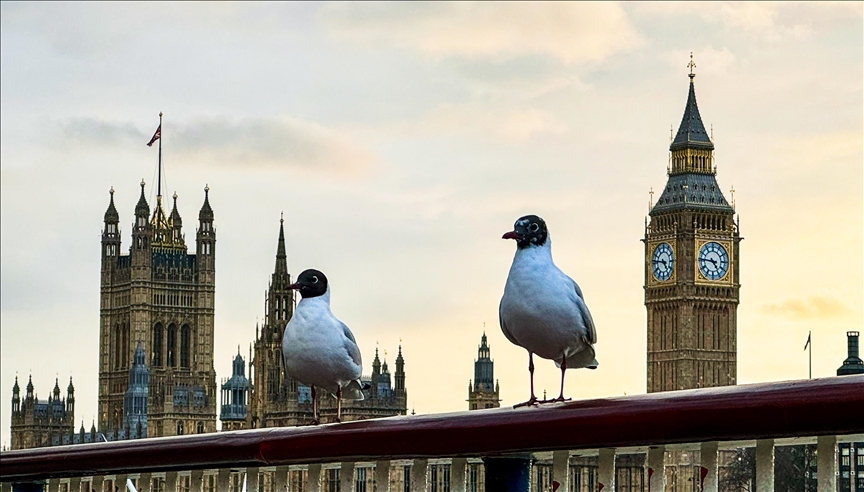UK government moves to abolish hereditary peers from House of Lords
Historic reform would end centuries-old tradition in Britain's upper chamber
 Seagulls stand on a wall in front of Big Ben, the Houses of Parliament, the Palace of Westminster in London, United Kingdom on March 05, 2024.
Seagulls stand on a wall in front of Big Ben, the Houses of Parliament, the Palace of Westminster in London, United Kingdom on March 05, 2024.
LONDON
The UK government has unveiled a proposal to abolish the remaining hereditary peers' right to sit and vote in the House of Lords, marking the most significant parliamentary reform in a quarter-century.
Announced by ministers on Thursday, the bill seeks to remove the final 92 hereditary peers from the upper chamber, bringing an end to a centuries-old tradition.
The move will complete the process initiated by Tony Blair's government in 1999, which eliminated most hereditary peer seats but allowed a small number to remain under a temporary arrangement.
Under current rules, when vacancies arise, they are filled through internal byelections. The new legislation, expected to become law in 2024, will eliminate this system entirely.
Nick Thomas-Symonds, the minister for the constitution, called the reform a "landmark" moment, arguing that the hereditary principle in lawmaking is outdated.
"The second chamber plays a vital role in our constitution, and people should not be voting on our laws in parliament by an accident of birth," he said.
Currently, all 92 hereditary peers are white men, with an average age of nearly 70, a demographic that has drawn criticism for being unrepresentative of modern Britain. The reform will also remove the Earl Marshal and Lord Great Chamberlain, two of the highest ceremonial officers in the British monarchy.
The Labour Party, which has long advocated for an overhaul of the House of Lords, has called the presence of hereditary peers “indefensible” and included their removal in its latest manifesto.
Once enacted, the bill will mark the final step in modernizing the House of Lords, transitioning to a fully appointed and a more merit-based upper chamber.




